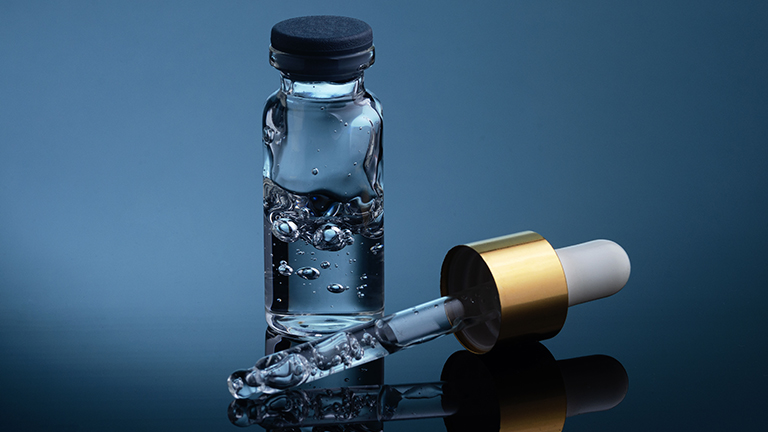Folinic acid’s pretty much the MVP of folate supplements. Your body doesn’t have to jump through hoops to use it—unlike boring old folic acid, which kind of expects your metabolism to do all the heavy lifting. So if you’ve got one of those pesky MTHFR gene mutations (yeah, genetics really loves its acronyms), folinic acid skips the line and gets straight to work. We’re talking better DNA repair, sharper thinking, more energy, and it’s a big deal during pregnancy too. Honestly, if you’re after something that’ll help your body run smoother and your brain stay on point? Folinic Acid Supplements, This stuff is safe, effective, and way less drama than some other options. Total game-changer for your cells.
What is Folinic Acid?
So, folinic acid—ever heard of it? It’s basically the VIP version of folate (that’s vitamin B9 for the science geeks), but with a twist. Unlike regular folic acid, your body doesn’t have to jump through a bunch of hoops to use it. There’s this enzyme with an outrageously long name, MTHFR, that a lot of us don’t make enough of, and folinic acid just skips past it like, “No biggie, I got this.” That means your system gets the good stuff right away, no waiting in line.
Key Functions of Folinic Acid
Why care? Well, for starters, this stuff is like the project manager for DNA and RNA—making sure your cells copy and fix themselves properly. It’s also big in the whole methylation scene (which is this wild behind-the-scenes process your body runs to keep you ticking along), and it helps process homocysteine, which, if it piles up, is bad news for your heart. Oh, and it keeps your blood healthy—think of it as the unsung hero against anemia. Brain fog? Mood swings? Folinic acid’s got your back there too, helping out with your mental game.
Honestly, if you’ve got some weird genetic thing going on with MTHFR (and, trust me, a lot of people do), folinic acid is probably the supplement you want in your corner.
Folinic Acid vs Folic Acid: What’s the Difference?
Although folinic acid and folic acid are related, they are not the same:
| Feature | Folinic Acid | Folic Acid |
|---|---|---|
| Form | Active folate (5-formyl tetrahydrofolate) | Synthetic folate requiring conversion |
| Bioavailability | High, ready to use by the body | Requires metabolic conversion |
| Best For | People with MTHFR mutations, pregnancy, mental health support | General folate supplementation |
Top Health Benefits of Folinic Acid Supplements
Alright, let’s cut through the fluff and get real about folinic acid. You pop these supplements, and here’s what supposedly happens:
- Energy boost, baby. Folinic acid teams up with B12 to keep your mitochondria running like a well-oiled machine. Translation: you might feel less wiped out dragging yourself through the day.
- No more vampire vibes. Your body needs this stuff to crank out red blood cells, so say goodbye to that pale, anemic look (assuming you actually have a deficiency in the first place).
- Heart’s in the right place. Literally. Folinic acid helps handle homocysteine, which—if it gets outta control—can mess with your heart. So, it’s like a tiny bouncer for your arteries.
- Glow up time. Folate’s a big deal for skin and hair because it keeps your cells regenerating. You want that fresh-faced, shiny-haired look? Folinic acid’s in your corner.
- Your body’s own cleaning crew. This stuff helps with methylation, which sounds science-y but basically means it helps detox your system. Out with the garbage, keep the good stuff.
All in all: folinic acid’s not some miracle pill, but it’s got its perks. Just don’t expect it to turn you into a superhero overnight.
Folinic Acid for Mental and Cognitive Health
Honestly, folinic acid is kinda underrated when it comes to mental health. We’re talking real perks here—like, some folks actually notice their depression and anxiety chill out a bit when they add it to their routine. Not saying it’s magic, but hey, every little bit helps, right?
Plus, this stuff basically helps your brain make those feel-good neurotransmitters, so your mood and brainpower might get a little boost. Not just for the young crowd either—there’s some evidence it could help keep your mind sharp as you get older, which, let’s face it, is pretty clutch.
And get this: new research is hinting that folinic acid and vitamin B12 are basically the dream team for your brain. Like, they work better together. Science high-five.
Folinic Acid in Pregnancy and Fetal Development
Look, folinic acid is kind of a game-changer for pregnant women. First off, it’s a big deal for stopping those scary neural tube defects in babies—nobody wants to mess with that, trust me. Plus, when you’re basically growing a tiny human at warp speed, your body’s cranking out new cells like there’s no tomorrow, and folinic acid keeps that whole show running smoothly.
And you know all that talk about methylation and genetic health? Folinic acid’s got your back there too—helps make sure baby’s development stays on track.
Oh, and here’s the kicker: if you’ve got one of those MTHFR gene mutations (yeah, it’s as annoying as it sounds), folinic acid skips over the usual metabolic headaches that folic acid can cause. It’s just a smarter choice, especially if your body doesn’t play nice with the standard stuff.
Recommended Folinic Acid Dosage
So, folinic acid—yeah, the dosage kinda jumps around depending on who you are and why you’re taking it. For adults, you’re usually looking at somewhere between 400 and 1000 micrograms a day, but honestly, if you’re thinking about cranking up the dose, you better be talking to a doctor first. Kids? Way less—think like 50 to 200 micrograms, but it’s gotta match their age and size. Pregnant? That’s a whole different ballgame. Most women stick to 400 to 800 micrograms, but again, trust your doc on this one. Don’t just wing it—folinic acid’s not the kind of thing you want to freestyle with.
Possible Side Effects and Safety Considerations
Here’s the deal with folinic acid—usually, it’s pretty chill for most folks. But, like, if you go overboard, don’t be shocked if your stomach starts acting up or you get the occasional headache. Maybe you’ll even find yourself staring at the ceiling at 3 a.m. (yep, insomnia loves to crash the party). Every once in a blue moon, someone might have an allergic reaction, but that’s not exactly common.
Honestly, if you’re thinking about taking big doses, don’t just wing it. Get a doctor on board, especially if you’ve already got health stuff going on. Better safe than sorry, right?
Forms of Folinic Acid Supplements
Let’s break down folinic acid supplements like a real person who’s actually tried to navigate the vitamin aisle.
First off, you’ve got options. Capsules?
Super straightforward—just pop one in the morning and you’re good. Tablets are pretty much the same, except you can find them in all sorts of strengths, which is handy if you’re trying to dial in your dose. And then there’s powder. Honestly, if you’re not a fan of swallowing pills (who is, really?), you can toss some powder into your smoothie and forget it’s even there.
Combining Folinic Acid with Other Nutrients
Now, here’s the thing—folinic acid doesn’t like working alone. It plays well with others, especially when you bring Vitamin B12 into the mix. That combo is basically the power couple for your energy levels and metabolism. Toss in some B6, and you’re helping your body keep homocysteine (the stuff you don’t want too much of) in check. Oh, and don’t sleep on choline and betaine. Those two are like the behind-the-scenes crew, quietly helping your liver and detox systems run smooth.
So yeah, it’s not just about taking a single supplement—these guys work better together. Think of it like assembling your own little nutrient Avengers team.
Expert Opinion on Folinic Acid Supplements
“Folinic acid is a highly bioavailable form of folate that bypasses several metabolic steps required by folic acid. It is especially beneficial for individuals with MTHFR gene mutations, pregnant women, and anyone looking to support cognitive function and energy metabolism. Combined with B12, folinic acid can improve DNA repair, reduce fatigue, and support overall metabolic health.” – Dr. Jane Williams, Nutrition Specialist
How to Choose the Best Folinic Acid Supplement
So picking a folinic acid supplement isn’t rocket science, but you don’t wanna just grab the first bottle you see either. First—obviously—peep the dosage. Don’t just wing it and hope for the best; see how much you’re actually getting per serving and, you know, what you’re supposed to take each day.
Brands matter, too. There’s a lot of sketchy stuff out there, so go for ones that actually get tested by third parties and don’t just slap a fancy label on some mystery powder. And then, think about how you want to take it—capsule, tablet, powder? Whatever’s least annoying for you, honestly.
Oh, and don’t forget to skim the ingredients for any weird fillers or allergens. Nobody wants a supplement that comes with a side of hives.
Frequently Asked Questions (FAQ)
Q1: Can folinic acid be taken with other medications?
Yeah, you can take folinic acid with other meds, but there’s a catch—it can mess with stuff like methotrexate, chemo drugs, or certain anti-seizure pills. Basically, don’t go rogue with this. Chat with your doctor first, unless you’re into medical roulette.
Q2: Is folinic acid better than folic acid?
Honestly, folinic acid kind of schools folic acid for some folks, especially if your body’s not great at the whole MTHFR conversion thing. It skips a step and gets to work faster. But “better” depends on your body’s drama, you know?
Q3: Can children take folinic acid supplements?
Sure, kids can take it, but you gotta be careful. The dose isn’t one-size-fits-all—tiny humans need less, and it should be figured out by someone with an actual medical degree. Don’t just eyeball it.
Q4: How long does it take to see benefits?
Don’t expect magic overnight. Some people get a bit more pep in their step within a few weeks, but stuff like brain fog and metabolism might take months to budge. It’s not an energy drink. Patience, grasshopper.
Conclusion: Is Folinic Acid Right for You?
Folinic acid’s kind of the unsung hero in the world of supplements. Seriously, if you want a folate source that actually works with your body (instead of going straight through you like some cheap stuff), this is it. Folks use it for all sorts of things—pregnancy, brain fog, energy slumps, you name it. Honestly, you probably wanna talk to your doctor before popping a bunch, since more isn’t always better (despite what supplement ads tell you). But when you get it right, folinic acid can totally level up your health routine. Not magic, but pretty darn close.


